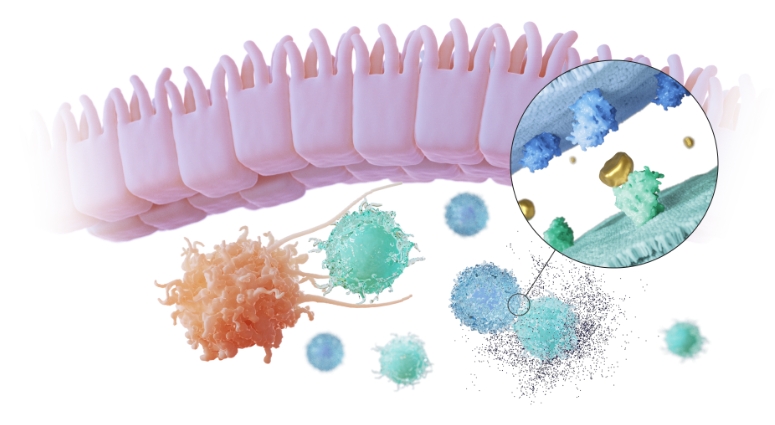A competent immune system that prevents pathogens from establishing a successful infection is vital to keeping animals healthy and productive. The villi and the underlying tissue of the gut are home to a vast number of immune cells. These immune cells, along with the intestinal epithelial cells, are the first line of active defense against disease-causing organisms.

A Strong Intestinal Barrier Is Important for Pathogen Defense
Along with immune competence, the structure and functional integrity of the intestine are key to reducing the risk of infection. A healthy intestinal tract and competent immune system improve the ability of the animal to block the invasion of pathogens into intestinal epithelial cells and the circulatory system.
